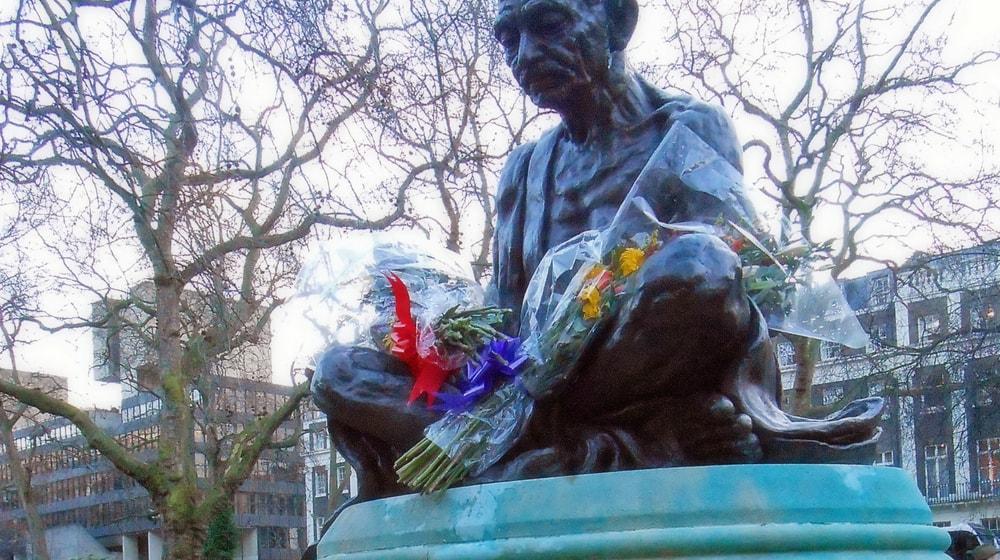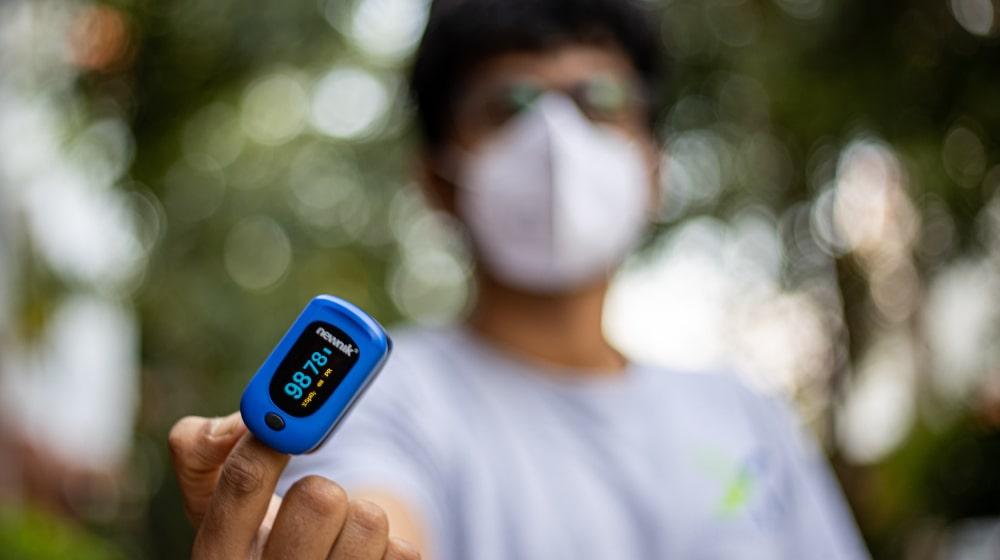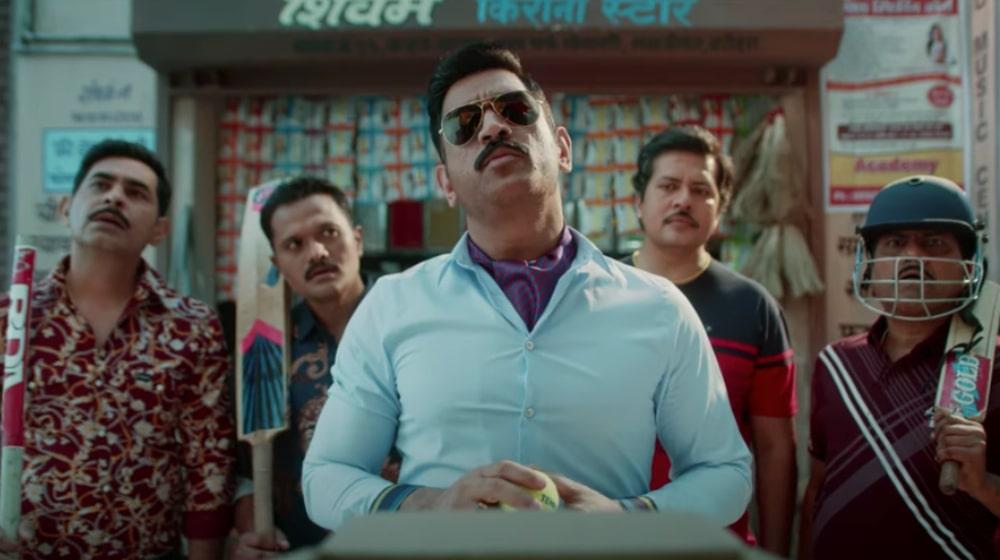UPDATE: This Mahatma Gandhi Jayanti post was originally published on 5 September 2018 and updated on 28 September 2020.
“An eye for an eye only ends up making the whole world blind.” These were the words of Mahatma Gandhi (Mohandas Karamchand Gandhi), one of the greatest leaders in history, recognized the world over for his teachings on peace and nonviolence. On his birth anniversary, popularly known as Mahatma Gandhi Jayanti, we pay a historic tribute to Mahatma Gandhi by way of celebration, prayers and understanding the Gandhian principles of nonviolence and peace.
This year we commemorate Bapu's 151st birth anniversary.
At a time when the whole world is grappling with fear and frustration caused by the personal and economic stress of the COVID-19 pandemic, the Mahatma’s teachings are even more relevant.
The day is also marked by the United Nations as ‘International Nonviolence Day’ or ‘International Peace Day,’ as countries across the globe are showing a growing interest in the nonviolent alternative.
The inspiration
When Mahatma Gandhi was thrown off a train in South Africa for his refusal to give up his seat in the ‘whites only’ compartment in 1893, the incident not only changed his own life but also the course of history. It turned Gandhi into a revolutionary leader who persisted in the face of opposition by adopting nonviolence as a philosophy and an ideal way of life.
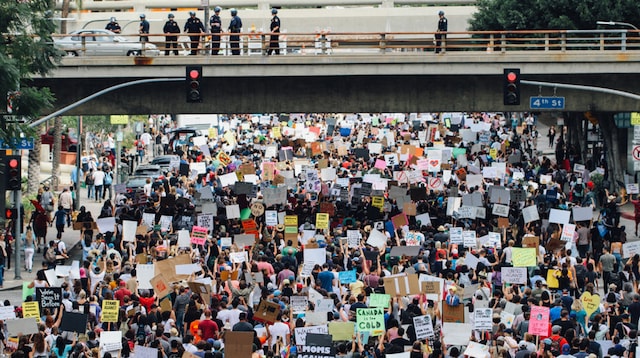
Photo: Alex Radelich on Unsplash
While many leaders have made a sincere effort to win over their enemies in an amicable manner, the term nonviolence is often associated with Mahatma Gandhi. He used peace as a powerful tool to fight against oppression, injustice, discrimination, cruelty and other evils.
For Gandhi, nonviolent resistance was the greatest force at the disposal of mankind.
He asserted that the philosophy of nonviolence is not a weapon of the weak; it is a weapon of strength and can be used by all.
The Salt March of 1930
Take for example the Salt March in 1930, when Mahatma Gandhi led a nonviolent — yet powerful — protest against Britain’s law dictating that no Indian could collect or sell salt in the country. The Mahatma walked over 240 miles, leading protesters to the Arabian Sea to scoop a handful of salt out of the brackish waters. After this peaceful yet defiant act, India gained independence from Britain in 1947.
Popularly called the ‘Father of the Indian nation’ Mahatma Gandhi drew on a variety of sources for his philosophy, including the Bible, the Bhagavad Gita and the work of writers such as Henry David Thoreau and Leo Tolstoy.
He applied these principles to a large political movement that used nonviolent resistance to persuade the British government — supposedly the most powerful regime of its time — to grant independence to India.
Gandhi and his lasting global legacy
Since then, nonviolent actions have become a powerful weapon for social and political change around the world. In fact, several instances of nonviolent resistance have proven more effective than aggressive protest.
Using Mahatma Gandhi’s successful nonviolent struggle as a model, two great leaders in the U.S. led successful nonviolent campaigns in the 1960s.
Martin Luther King, Jr. embraced the Gandhian ways to demand civil rights for African Americans, while César Chávez led a movement to improve the condition of immigrant farmworkers in the country. Both became national (and later international) heroes and symbols of hope to millions of Americans.
The ripple effect

Photo: Linus Nylund on Unsplash
The concept of nonviolence soon developed a global following, inspiring movements in countries such as the Philippines, Poland and Czechoslovakia.
The ‘Polish Gandhian’
For example, the 1980 fight against Communism in Poland was based on the principle of nonviolence. Led by Lech Walesa, the ‘Polish Gandhian’ as he was called, the movement held strikes to demand a free trade union. These efforts helped bring an end to the Polish Communist regime in 1989.
People power in the Philippines
In 1986 the Filipino People Power movement, under the leadership of Cardinal Jaime Sin, played a key role in the fall of President Marcos’ dictatorship.
The end of Soviet Rule in Czechoslovakia
A few years later, nonviolent struggles brought down Soviet rule in Czechoslovakia. This was followed by the fall of the Berlin Wall, the reunification of Germany and freedom for Estonia, Latvia and Lithuania in 1991.
The end of South African apartheid
In 1990, nonviolent protests and mass resistance against apartheid in South Africa, along with international demands, led to Nelson Mandela being freed and elected President of the nation. Mandela’s leadership, based on absolute faith in Gandhi’s nonviolence, saw apartheid successfully ousted from South Africa.
The Arab Spring
More recently, nonviolence featured prominently in the peaceful drive for democracy and human rights known as the 2011 Arab Spring. Peaceful protestors gathered to end decades of autocratic and oppressive rule in the Middle East. The movement ultimately spread to five countries: Tunisia, Egypt, Yemen, Libya, and Syria.
“You must not lose faith in humanity,” said Mahatma Gandhi. “Humanity is an ocean; if a few drops of the ocean are dirty, the ocean does not become dirty.”
In all these cases, violence was employed by oppressive regimes to control people in order to attain their own objectives. Protestors proved that peace and nonviolence can be more powerful and effective in managing conflicts — using ingenuity, vision, patience and dedication.
The annual celebrations
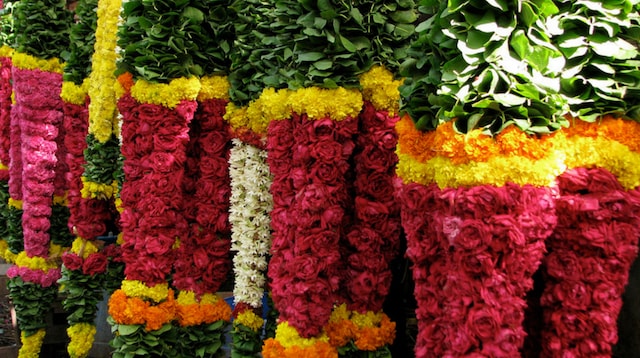
Photo: mckaysavage Flickr via Compfight cc
Gandhi Jayanti is indeed an occasion to celebrate. Every year in India as well as several parts of the world, it is done with great fervour. On Mahatma Gandhi Jayanti:
- The President and Prime Minister of India pay homage in front of the Mahatma’s statue at the Raj Ghat in New Delhi.
- This year, secondary schools will hold lectures series, All Faith Prayer and online morning assemblies on Gandhian philosophy.
- Across the country, Mahatma Gandhi’s statues are refurbished and garlanded and people pay their respect to Gandhiji, as he was popularly addressed.
Following in Gandhi’s footsteps, the current Prime Minister of India, Narendra Modi, introduced the Swachh Bharat Campaign, a cleanliness drive conducted in different localities. Under this campaign, Indians are encouraged to come together and contribute towards keeping their surroundings clean and spreading Ghandi’s message of love and peace.
Mahatma Gandhi Jayanti 2020
The Netherlands announced it will mark the grand finale of a two-year 'Follow the Mahatma' campaign on October 2, 2020. "October 2 will witness a large online gathering organised by the Embassy of India, The Hague in cooperation with Stichting Standbeeld Mahatma Gandhi. Dutch Minister of Justice and Security Ferdinand Grapperhaus will be the chief guest,” read an official statement issued on Monday 28 September.
Other celebrations on October 2 will include garlanding of Gandhi statues in the four cities of The Hague, Amsterdam, Utrecht and Zoetermeer and online sessions on Mahatma Gandhi for 200 schoolchildren at 13 schools.
To commemorate the birth anniversary of Mahatma Gandhi, the Indian Government reportedly identified six monthly themes inspired by Gandhi's ideas, including:
- Sanitation
- Nonviolence
- Community service
- Communal unity
- Removal of untouchability
- Women empowerment
The government has called Indians — not just in India, but across the world — to organize activities around these themes for the next six months.
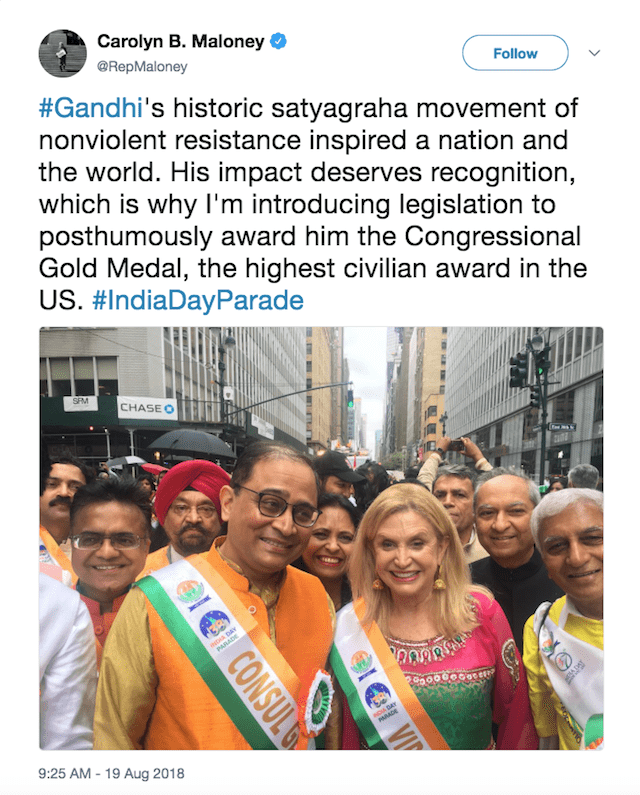
The gift of peaceful resistance
While we celebrate Mahatma Gandhi Jayanti every year on the occasion of his birth date, it is also important to honor his ideologies and the exemplary life that he led every day. In Mahatma Gandhi’s own words, “Whenever you are confronted with an opponent, conquer him with love.” When put into practice today, this theory can lead to a much better, safer and peaceful society.
